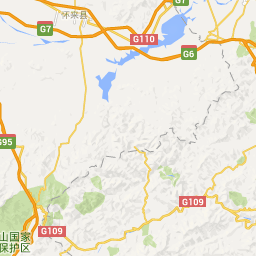《ArcGIS Runtime SDK for Android开发笔记》——(13)、图层扩展方式加载Google地图
1、前言
http://mt2.google.cn/vt/lyrs=m@225000000&hl=zh-CN&gl=cn&x=420&y=193&z=9&s=Galil

通过图层扩展类的方式加载Google地图的是我们通常获取Google地图的一种方式,根据这种方式我们可以通过拼接地图瓦片Url字符串获取瓦片数据,关于Google瓦片算法的解析网上有很多,以下仅列出博客地址,及具体实现类。
Google瓦片地图算法解析 :http://blog.csdn.net/hugoandpig/article/details/7719307
转载请注明出处:http://www.cnblogs.com/gis-luq/p/5443498.html
2、Google地图的自定义扩展类
package com.seraph.collect.BaseComp.MapLayer; import java.util.Map; import java.util.concurrent.RejectedExecutionException; import android.util.Log; import com.esri.android.map.TiledServiceLayer; import com.esri.core.geometry.Envelope; import com.esri.core.geometry.Point; import com.esri.core.geometry.SpatialReference; /** *Google地图加载 */ public class GoogleMapLayer extends TiledServiceLayer { private int minLevel = 0; private int maxLevel = 19; private String[] subDomains = new String[] { "mt1", "mt2", "mt3" }; private double[] scales = new double[] { 591657527.591555, 295828763.79577702, 147914381.89788899, 73957190.948944002, 36978595.474472001, 18489297.737236001, 9244648.8686180003, 4622324.4343090001, 2311162.217155, 1155581.108577, 577790.554289, 288895.277144, 144447.638572, 72223.819286, 36111.909643, 18055.954822, 9027.9774109999998, 4513.9887049999998, 2256.994353, 1128.4971760000001 }; private double[] resolutions = new double[] { 156543.03392800014, 78271.516963999937, 39135.758482000092, 19567.879240999919, 9783.9396204999593, 4891.9698102499797, 2445.9849051249898, 1222.9924525624949, 611.49622628138, 305.748113140558, 152.874056570411, 76.4370282850732, 38.2185141425366, 19.1092570712683, 9.55462853563415, 4.7773142679493699, 2.3886571339746849, 1.1943285668550503, 0.59716428355981721, 0.29858214164761665 }; private Point origin = new Point(-20037508.342787, 20037508.342787); private int dpi = 96; private int tileWidth = 256; private int tileHeight = 256; public GoogleMapLayer() { super(true); this.init(); } private void init() { try { getServiceExecutor().submit(new Runnable() { public void run() { GoogleMapLayer.this.initLayer(); } }); } catch (RejectedExecutionException rejectedexecutionexception) { Log.e("Google Map Layer", "initialization of the layer failed.", rejectedexecutionexception); } } protected byte[] getTile(int level, int col, int row) throws Exception { if (level > maxLevel || level < minLevel) return new byte[0]; String subDomain = subDomains[(level + col + row) % subDomains.length];
//构建待拼接字符串
String _mapType = "m@225000000"; String url = "http://" + subDomain + ".google.cn/vt/lyrs=" + _mapType + "&hl=zh-CN&gl=CN&src=app&" + "x=" + col + "&" + "y=" + row + "&" + "z=" + level + "&s=Ga"; Map<String, String> map = null; return com.esri.core.internal.io.handler.a.a(url, map); } protected void initLayer() { if (getID() == 0L) { nativeHandle = create(); changeStatus(com.esri.android.map.event.OnStatusChangedListener.STATUS .fromInt(-1000)); } else { this.setDefaultSpatialReference(SpatialReference.create(102113)); this.setFullExtent(new Envelope(-22041257.773878, -32673939.6727517, 22041257.773878, 20851350.0432886)); this.setTileInfo(new TileInfo(origin, scales, resolutions, scales.length, dpi, tileWidth, tileHeight)); super.initLayer(); } } }
文章若无特殊说明均为原创,原创作品,允许转载,转载时请务必以超链接形式标明文章出处、作者信息和本声明。 博客:http://www.cnblogs.com/gis-luq 作者:gis-luq 邮箱:luqiang.gis@foxmail.com


